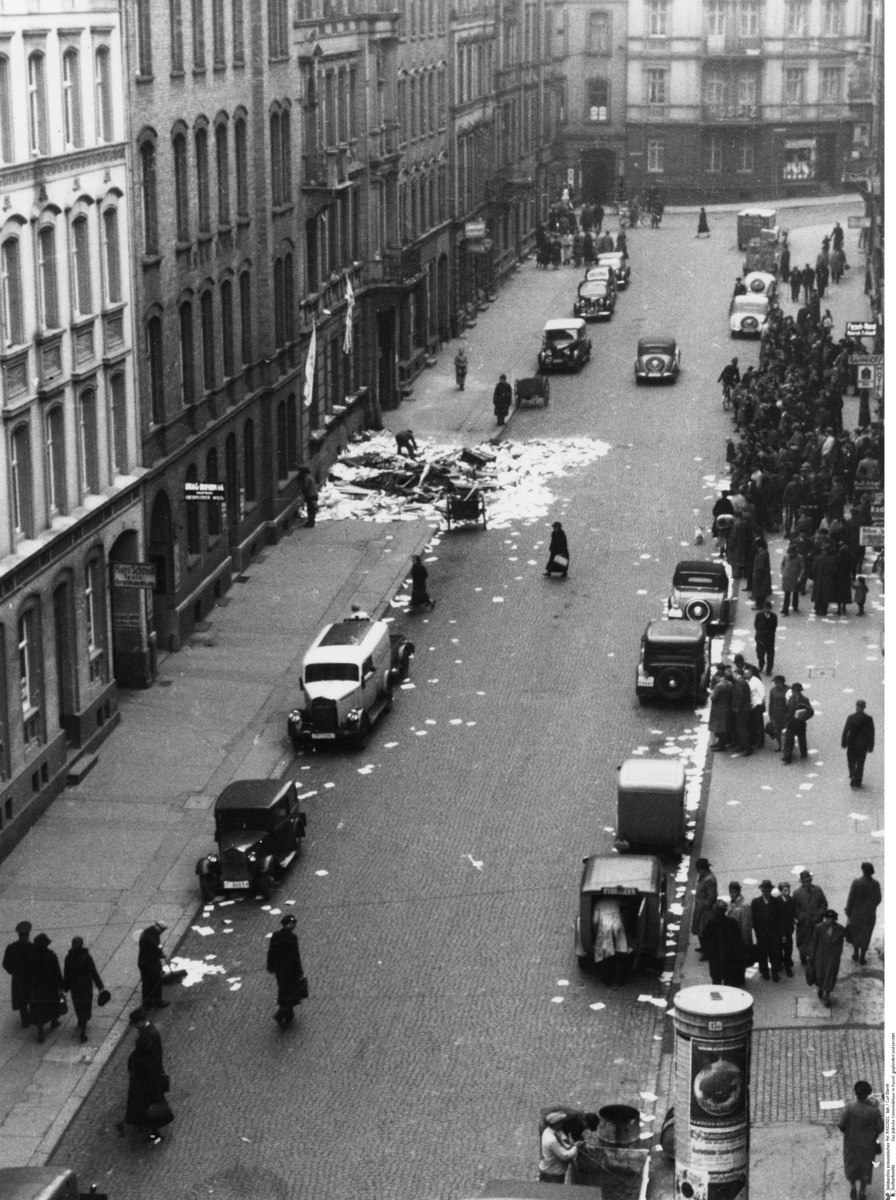Abstract
The Nazi leadership immediately seized upon Grynszpan’s crime and
exploited it for its own ends. The National Socialist press presented
the incident as part of a plot fomented by “international Jewry,” and
the regime used it as a pretext for the final expropriation of Germany’s
remaining Jews and their subsequent expulsion from the Reich. On
November 7 and 8, scattered eruptions of antisemitic acts of violence
took place at Goebbels’ command. These outbursts were officially
described as signs of the German people's outrage. After learning of
Ernst vom Rath’s death on the afternoon of November 9, Hitler authorized
Goebbels to stage a nationwide pogrom. That evening, Goebbels spoke to a
group of party leaders who had gathered in Munich for the 15th
anniversary of the Beer Hall Putsch and instructed them to launch a
seemingly spontaneous retaliation against Jewish individuals and
institutions. The party and the SA were to direct the action but were
not be seen as its organizers. At the same time, Heinrich Müller and
Reinhard Heydrich instructed all German police authorities not to
interfere with these acts of violence. The sole task of the police was
to carry out mass arrests of Jews, to protect “Aryan” and foreign
persons and property, and to prevent looting. During the night, an
unprecedented wave of violence and destruction engulfed Germany’s Jews.
Their apartments, houses, businesses, and factories were devastated and
looted. Jewish cemeteries and graves were desecrated. Nearly all of
Germany’s synagogues and its more than 1,000 Jewish places of worship
were destroyed. According to later insurance estimates, the losses
amounted to 39 million Reichsmarks for fire damage, 6.5 million for
broken windowpanes, and 3.5 million for stolen property. Photo by Carl
Eberth.
